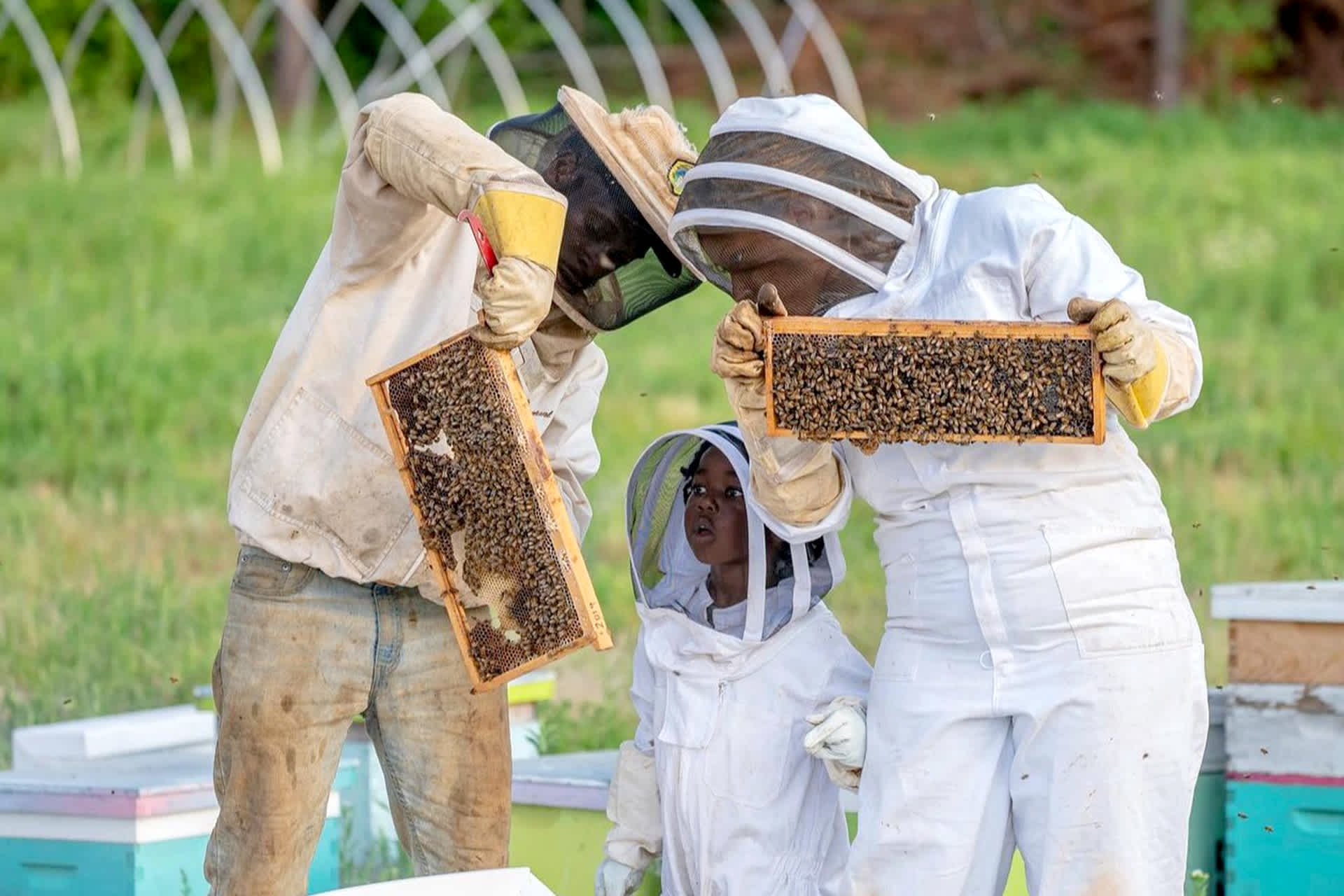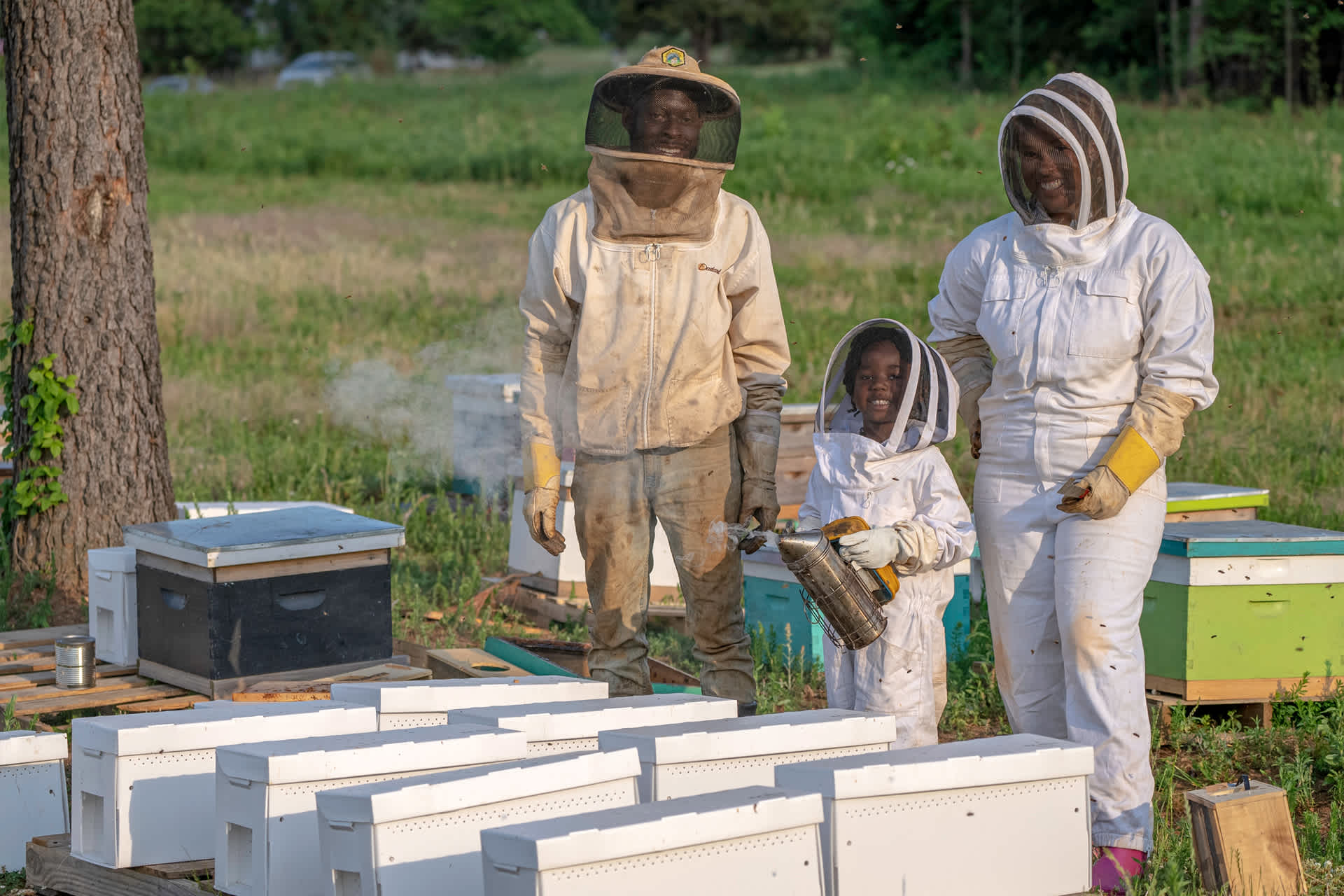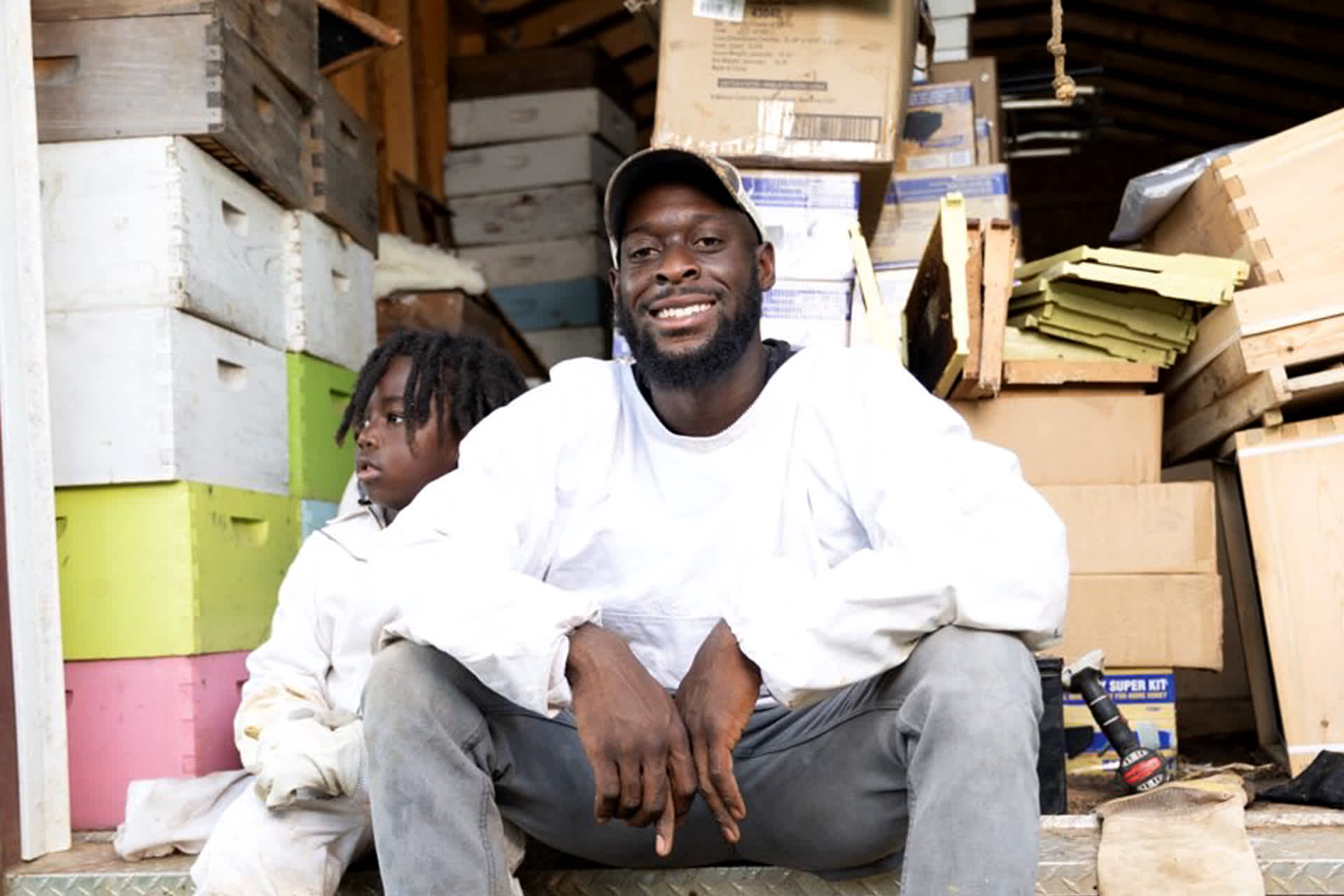The Buzz on Beekeeping

Meet Kamal Bell. He’s the founder and CEO of Sankofa Farms, in Cedar Grove, North Carolina. He’s also a beekeeper. Bell says bees are “vital” to fruit and vegetable pollination on the farm. He points out that according to the United States Department of Agriculture, honeybees pollinate more than 130 types of fruits, vegetables, and nuts. Of course, the insects also produce delicious honey.
Bell got into beekeeping through his work with young people. One of them “mentioned that working with honeybees would keep him more interested in being a part of our youth program at the farm,” he says. “And once he mentioned that, I took it upon myself to go become a certified beekeeper.” His education sparked a real love for the insects. “Once I started learning about bees, I went and caught my first swarm,” Bell says. (A swarm is a group of bees that has separated from its colony to start a new one. Beekeepers catch swarms and take them back to an apiary, or a collection of beehives.) “And once I caught my swarm, it was so exhilarating that I haven’t stopped since.”
Your Hot Job talked with Bell to learn about the business of beekeeping.
Beehive Inspection
If it’s a Friday, it’s time for Bell to do his weekly beehive check-in. While he works, he wears a beekeeper suit and gloves to protect himself from stings.
The inspection starts with a process called smoking. Bell collects pine needles, puts them in a tool called a smoker, and lights it with a torch. Smoke calms bees, which makes it easier for a beekeeper to inspect a colony.

Beehives are boxes made out of wood or plastic. Typically, they’re fitted with eight to 10 removable frames. Bell checks the frames one by one, starting with the outermost frame and working his way to the middle of the colony. He’s checking the bees’ honey production, and looking for “baby bees in all stages of development.” These include eggs, larva, and pupa. “If I see the eggs, I then look for the queen [bee] to make sure she’s laying and productive,” Bell says. After that, he closes up the hive and moves on to the next. He has 15 honeybee colonies, so inspection takes time.
Building Community
Bell runs a program called Sankofa Academy, designed to teach young people about agricultural careers, including beekeeping. Participants have responded well to the hands-on experience of working with the hives, he says. “The most rewarding part about beekeeping,” he adds, “is just being able to build community with the younger generation, and then being able to use beekeeping as a tool to teach them avenues that exist in agriculture.”

Bees and Us
With beekeeping, Bell says, you learn how a honeybee colony operates, and there are a lot of parallels to our daily lives. Teamwork is one example. “Bees work very well as a team, and collectively make decisions,” he says, adding that sometimes, “humans could do better in that department.” Bell also notes that in a honeybee colony, female bees take the lead. “It is very interesting to see how well their colonies function,” he notes. “The bees are a very good tool for teaching societal dynamics.”
Incredible Insects
“I wish more people knew that bees are not as scary as we have been educated—or I would say miseducated—to think,” Bell says. In fact, he points out, when the insects are healthy and you’re working with them with the proper protection, bees are easygoing creatures. Bell’s 7-year-old son, Akeem, helps tend the hives, and he finds bees fascinating. “I want people to know that you should take very good care of the bees,” Akeem says, “because they’re really important to us all.”

